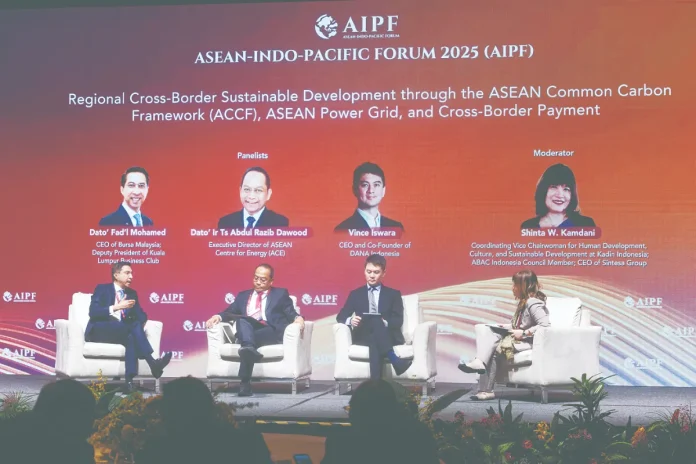KUALA LUMPUR: Endorsement from Asean member states will be vital to ensure the success of the Asean Common Carbon Framework (ACCF) implementation, said Bursa Malaysia CEO Datuk Fad’l Mohamed.
He said the initiative, which has been in development over a tight 12- to 18-month timeline, aimed to be operationalised at a granular level, with methodologies, interoperability and policy discussions forming part of its next phase.
“To make this a success, we will need some level of endorsement from Asean. That’s the next objective, (which is) to get each member state to sign on it, operationalise it at a granular level, develop methodologies, discuss interoperability and look at policies.”
Fad’l said this during a panel discussion on “Regional Cross-Border Sustainable Development through the Asean Common Carbon Framework, Asean Power Grid (APG) and Cross-Border Payment” at the Asean-Indo-Pacific Forum 2025 here today.
Other panellists were Asean Centre for Energy executive director Datuk Abdul Razib Dawood and Dana Indonesia CEO and co-founder Vince Iswara.
Fad’l, who is also the Kuala Lumpur Business Club deputy president, said much of the ACCF’s progress has been driven by the private sector through collaboration among five associations that signed a memorandum of collaboration to push the initiative forward.
He added that the initiative reflects the region’s shared ambition to achieve net-zero targets and enhance liquidity through interoperability among Asean member states.
“I’m confident this initiative will continue beyond Malaysia’s chairmanship, as other Asean member states are equally vested in ensuring its success,” he said, adding that collaboration with other partners would come naturally as the carbon market develops and more projects are launched.
Meanwhile, Abdul Razib said Asean member states have agreed to move forward with implementing the new enhanced memorandum of understanding for the APG following the recent 43rd Asean Ministers of Energy Meeting.
“Ten Asean members agreed to move towards implementation, instead of escalations and so on. They are going to set up important task forces looking at the challenges of regulatory issues across borders and technical issues, as well as the commercial issues,” he added.
Abdul Razib said the new task forces would play a key role in shaping the regulatory framework and future market design for the APG, supported by multilateral development banks and private financiers under the APG Financing Initiative.
He said the move reflects a renewed political commitment by Asean members to accelerate the long-discussed power grid project through a coordinated and regulatory-led approach. – Bernama








